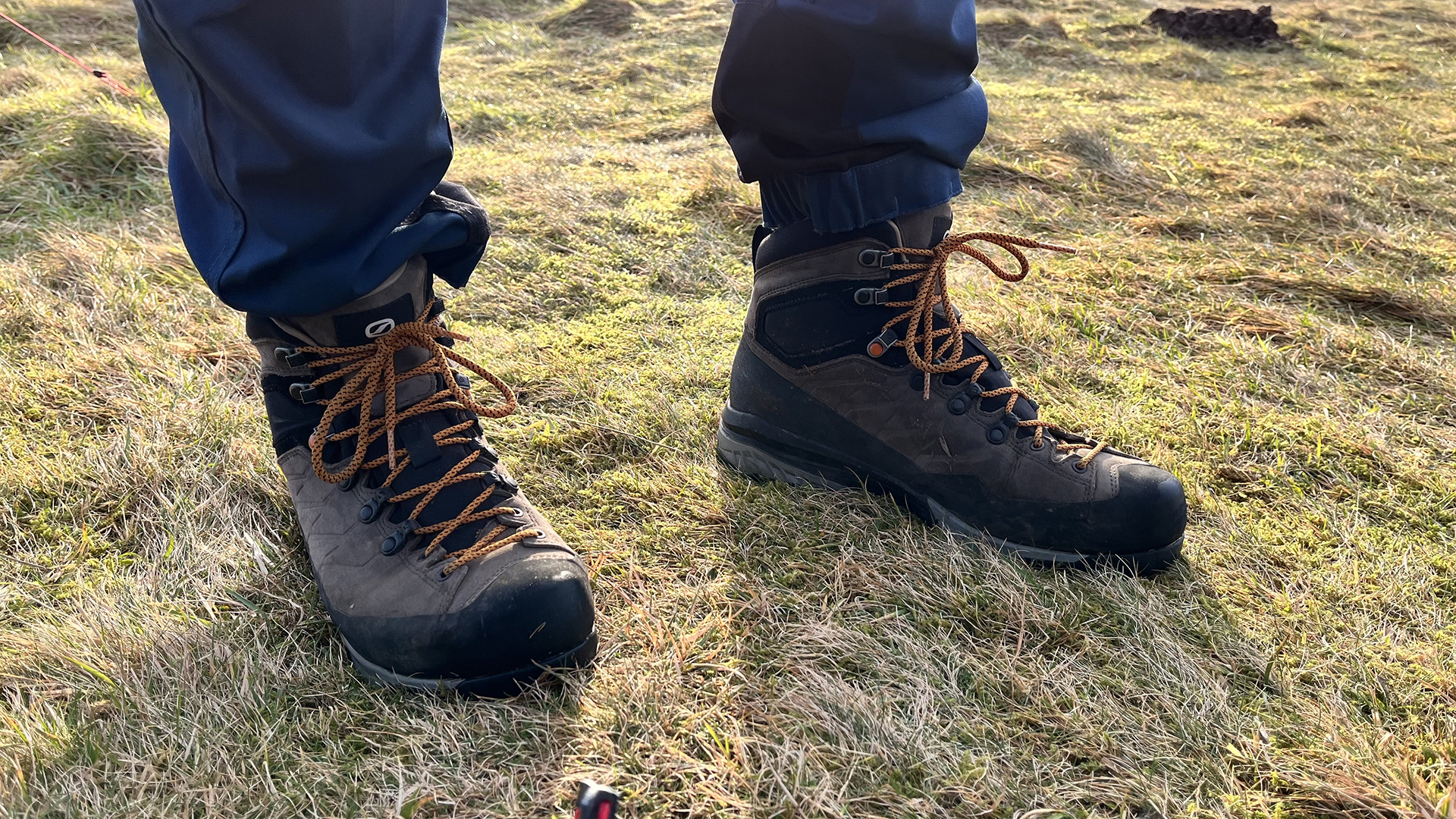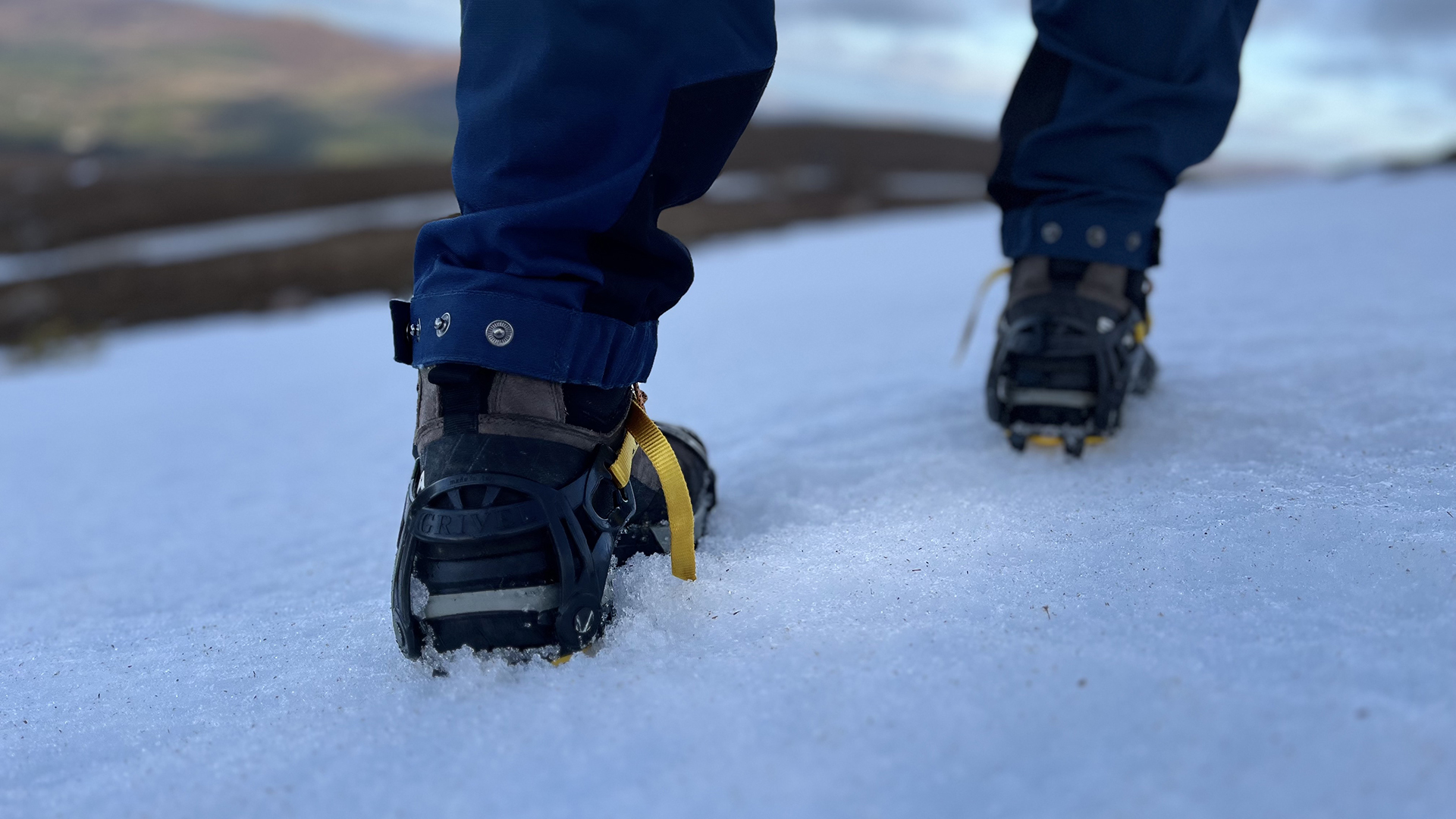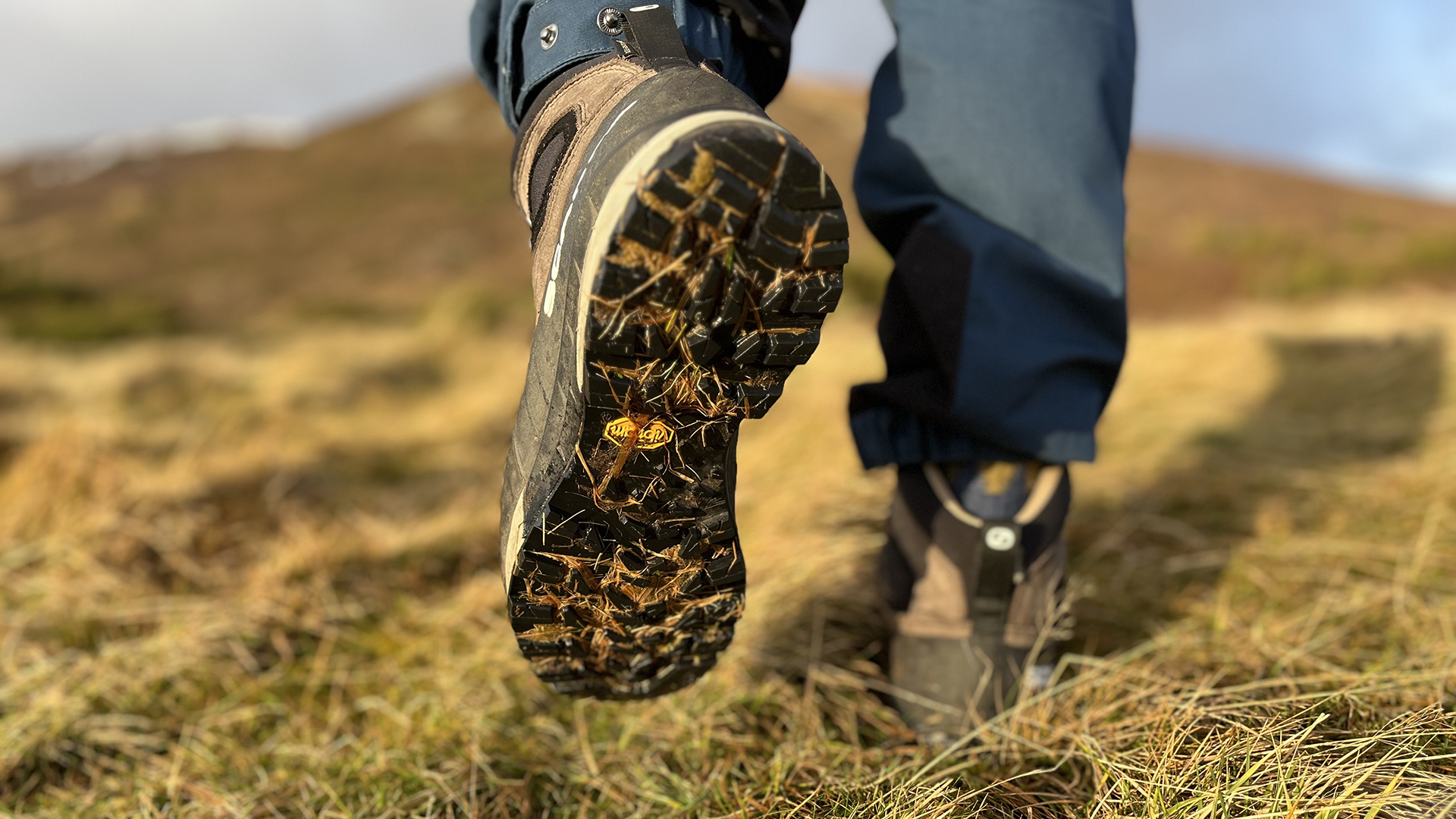
Scarpa Mescalito TRK Pro GTX: first impressions
Scarpa is one of the most reputable brands in the hiking boot space. Hailing from Italy, it's long built some of the top lines out there, ranging from super high-quality high-altitude mountaineering shoes to climbing footwear and approach shoes. One of its most popular lines is the Mescalito TRK GTX – a hiking boot that adds the comfort and flexibility of an approach shoe to the protection and durability of a hiking boot. But is it possible to take it one step further? That's what the Scarpa Mescalito TRK Pro GTX (available direct from Scarpa) is here to do: to deliver the same sterling performance as its predecessor while adding even more versatility, thanks to a plush nubuck leather upper and a B1 rating (meaning these are crampon compatible for winter adventures above the treeline). In that sense, then, Scarpa is pushing the new Mescalito TRK Pro GTX as the ultimate all-rounder; the boot that can do it all. But how accurate is that in reality?
• List price: £285 / $TBD
• Weight (per shoe): 710g / 1.6 lbs (size 42)
• Upper material: Nubuck leather
• Color: Charcoal grey/mango
• Compatibility: Backpacking, trekking, mountaineering
The Scarpa Mescalito TRK Pro GTX are listed as weighing 650g / 1.4 lb per shoe in size UK 8/EU 42. As the sample I received came in this exact size, however, I tested this myself and popped them on the weighing scales. Before wearing them, the scale read a weight of 710g / 1.6 lb per shoe – 60g / 2oz more than the numbers published by Scarpa itself. Which, discrepancy aside, is about the weight you'd expect from a shoe this heavy-duty and durable, and is in line with what other shoes in this category weigh, such as the La Sportiva Trango Tower GTX or Aku Tengo GTX boots.
Price is another area where the Mescalito TRK Pro GTX are decidedly competitive. When bought directly from Scarpa, the boots will set you back £285, £35 more than the slightly less feature-rich Mescalito TRK GTX. Though this is still a fair bit of cash, it puts them on par with the popular Aku Tengo GTX or the La Sportiva Trango Tower GTX boots, which both cost around £280 at the time of writing.
Scarpa Mescalito TRK Pro GTX: in the wild

I first got my hands on a pair of Scarpa Mescalito TRK Pro GTX hiking boots back at the start of winter 2023. Since then, I've worn them on numerous hikes, wild camping trips and multi-day treks, as well as on the odd day hike with the family to wear them in. They joined me on a trip to the Brecon Beacons, on a three-day wildcamping trip in the Cairngorms in January, and they have marched their way through mile after mile of muck, sludge and mud across the Chiltern Hills. I've worn them on warm days when the temperature has been above 12°C / 54°F, on cold days when the weather has hit -9°C / 16°F, and I was even able to put their crampon compatibility to the test above the snowline in the Cairngorms. So I'd say I'm pretty familiar with them by now, even though I've only been wearing them for around 12 weeks or so. So how did they do?
To start with, the Scarpa Mescalito TRK Pro GTX hiking boots need to be worn in. For me, that meant racking up about 19 miles of walking over a couple of weeks. I wore them on regular jaunts with the family across fields and through rolling woodland, and I felt like they got more comfortable with every walk. Which, to be clear, is not what I expected: burly B1-grade hiking boots normally take a while to become comfortable. Even my less rugged Lowa Renegades took longer to break in. But not the Mescalito TRK Pro GTX: all initial 'wearing in' feel was gone after a couple of uses, and I was quickly able to spend the whole day in these things without any discomfort whatsoever.

That being said, on the odd occasion that I didn't do the laces up properly, or position the tongue inside the boot correctly, I did feel some substantial rubbing on the side of my ankle. In fact, after returning to the car after three days in the Cairngorms, we went for a quick jaunt around Loch Ness on our way back to the airport. As the adventure was over, I didn't bother properly tying my laces — I was wearing B1 boots on a flat walk around a lake, after all. But this mistake was a costly one: I ended up developing a large blister on the side of my ankle which took a few days to heal. Granted, this was pure user error as I wasn't wearing the boots properly. But it's worth being aware that the Mescalito TRK Pro GTX boots are only comfortable when appropriately fastened, so keep that in mind when using them in the wild (or even along the shores of Loch Ness!).
When it comes to waterproofing, this is an area where the Scarpa Mescalito TRK Pro GTXs seem to excel. Living near the Thames, many of the miles I walked to wear these boots in were along flooded towpaths or across incredibly boggy fields. My feet were therefore submerged for relatively long durations over and over again, and never once did any water penetrate the boot. Inside, my feet stayed dry and warm, irrespective of the conditions, except for one time when the water came in over the top of the boot. When this happened, the boot took a solid two days to properly dry out when I kept them on the top of the boiler which – despite sounding like a bad thing – only speaks to the waterproofness of the shoe.

Another thing I particularly appreciate about the Mescalito TRK Pro GTXs is their ability to keep you upright on slippery terrain. Whether you're walking through mud, across ice or over snow, I found that the DYNAMIS TRK sole kept me feeling gripped to the earth. It performs well on both wet rock and soft, slippery ground, which gives you confidence in your footfall as you climb versatile terrain.
Overall, the Scarpa Mescalito TRK Pro GTX hiking boots are an excellent set of versatile shoes. They go a long way towards being a true four-season all-rounder, working phenomenally well on technical terrain while remaining comfortable and enjoyable to wear on flatter, less aggressive ground. If you pay attention to how you wear them, I think these could be your year-round go-to boot when hiking in wet, temperate conditions; the type we live with year-round in the UK.







